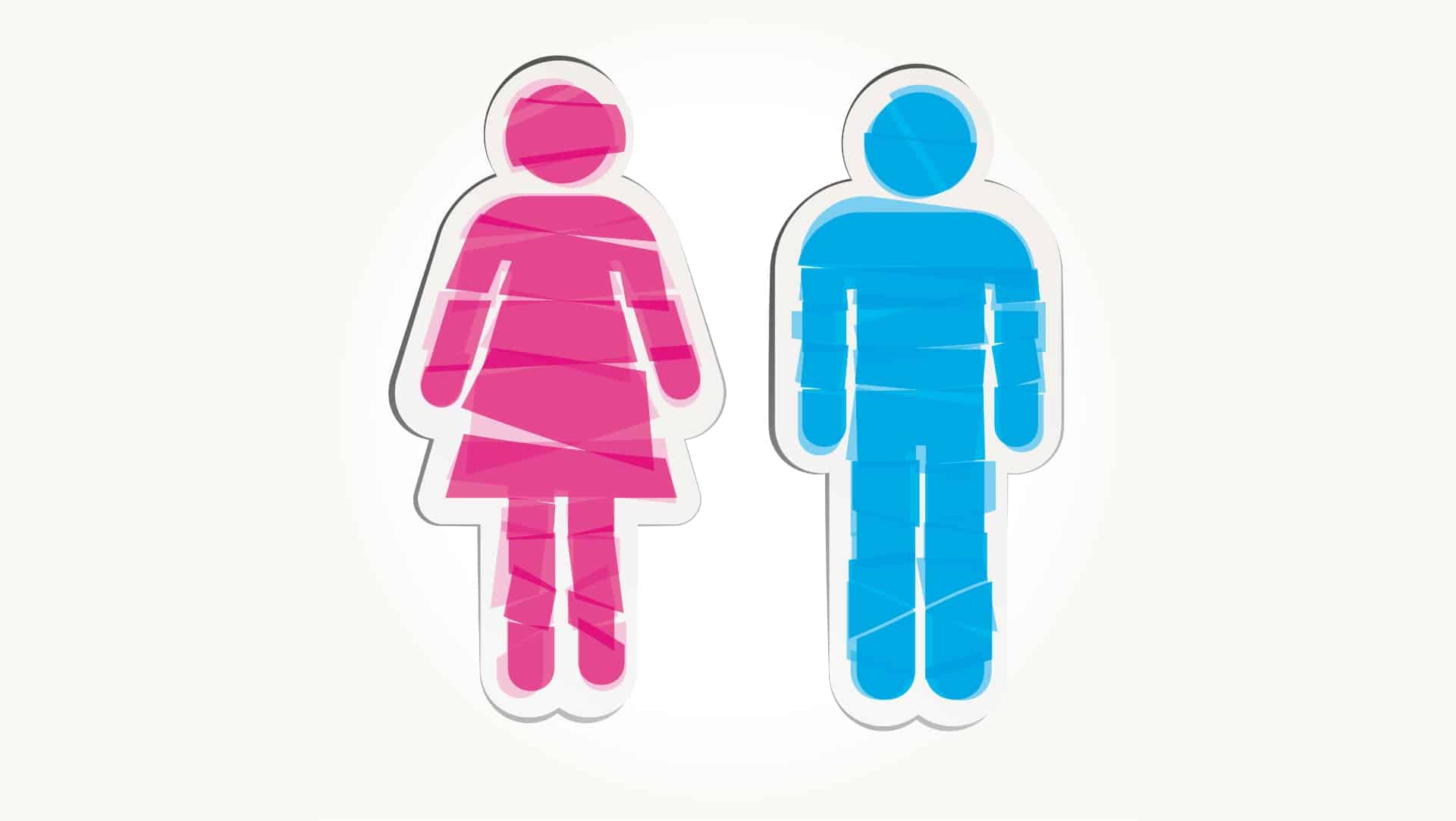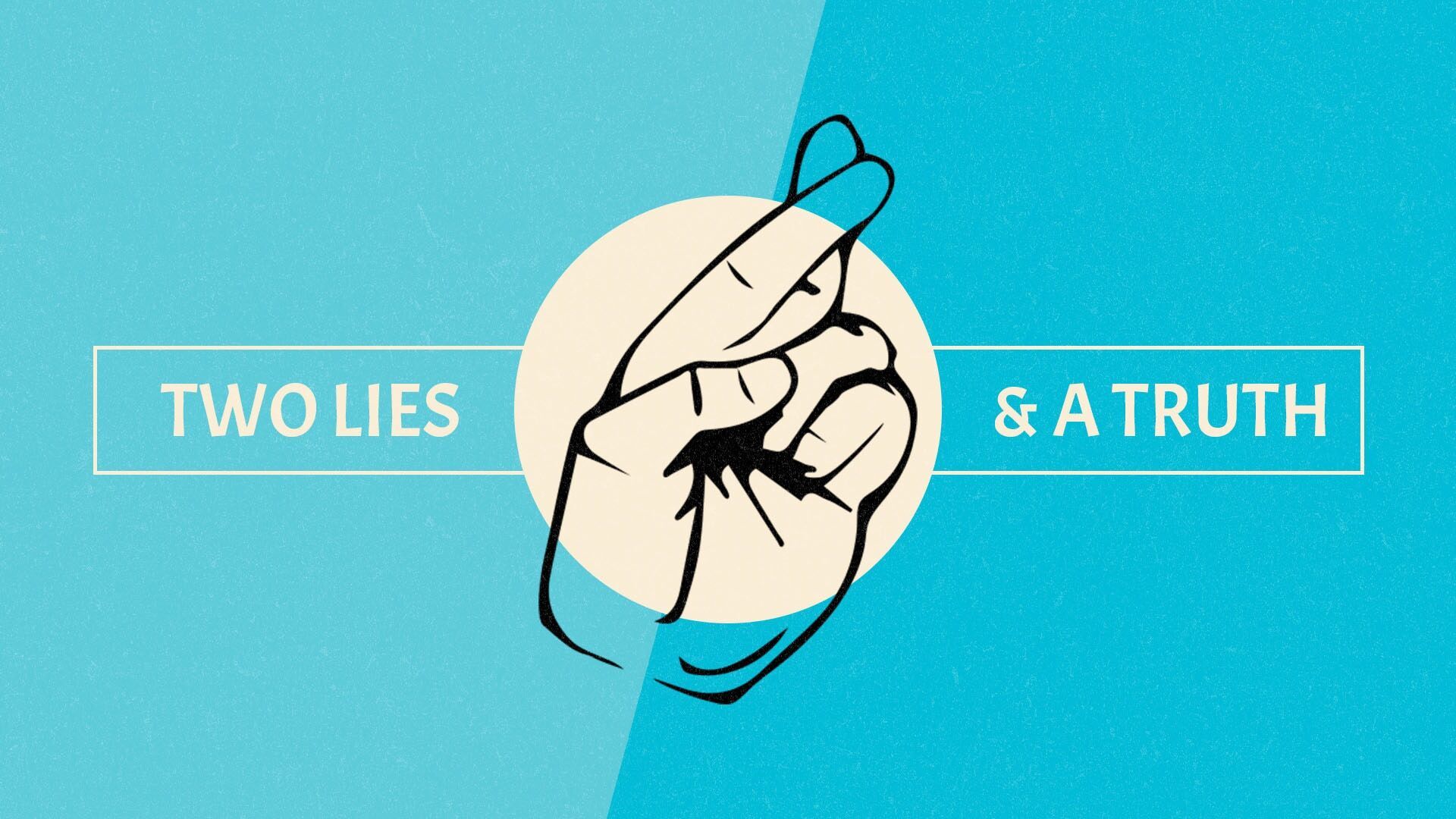Men, Women, and the Bible

Big Idea: Men and women are equal and different. Sin damaged the relationship between the sexes, and yet there is hope through Jesus.
We have covered difficult topics in this series. Why not go all the way?
We’re coming to the end of a series on sexuality and gender. We've already discussed challenging subjects such as sexual brokenness, marriage and singleness, the Bible's perspective on LGBT+ issues, and sexual assault. These are not only controversial issues to talk about in our culture, but they are deeply personal issues.
And so is today’s topic: what the Bible says about males and females. I don’t think I need to explain to you why this is such a controversial topic today both inside and outside the church. Instead, let’s just jump right into it and see what the Bible says about what it means to be male and female.
Here are five truths we learn.
One: Both Men and Women Are Equal
Any discussion of gender and the Bible has to begin here. Genesis 1:26-27:
Then God said, “Let us make man in our image, after our likeness. And let them have dominion over the fish of the sea and over the birds of the heavens and over the livestock and over all the earth and over every creeping thing that creeps on the earth.”
So God created man in his own image,
in the image of God he created him;
male and female he created them.
What this passage says about humanity is bold: all humans are made in the image of God. In the ancient world, people believed that only idols and kings were made in God’s image. But Genesis comes along and makes the revolutionary claim that all humans — males and females — are made in God’s image. We are all made to reign and to rule. God made us all kings and queens.
Gender is so important to this that one writer says, “The image of God shines forth in humanity as male and female; thus, if either all men or all women were to suddenly vanish, the image of God on planet earth would not be reduced to 50%, but to 0%.” We need both males and females to image God.
Not only that, after creating everything, God says, “And God saw everything that he had made, and behold, it was very good” (Genesis 1:31). God sees everything he’s made — including men and women — and pronounces it not just good, but good in the highest degree.
This is reaffirmed in Genesis 5: “When God created man, he made him in the likeness of God. “Male and female he created them, and he blessed them and named them Man when they were created.”
Later on, Jesus reaffirms this. “Have you not read that he who created them from the beginning made them male and female?” Jesus asked in Matthew 19:4. Jesus affirms the creation account and highlights the sexual differences as part of that.
Right from the beginning, the Bible is clear about humanity as male and female. Not only that, but it’s clear about the spiritual equality of men and women. God’s image applies to men and women equally. We can say that both Adam and Eve were created in God’s image, equal before God as persons.
Women have sometimes been regarded as second class. The Bible won’t have any of that. Right from the beginning, it asserts that men and women have equal status. Both men and women are made in God’s image and are equal.
Two: Men and Women Are Different
In Genesis 2 we read, “Then the LORD God said, ‘It is not good that the man should be alone; I will make him a helper fit for him’” (Genesis 2:18).
Remember we just read that everything was good? The narrator circles back and says that males alone without females is not good. Man cannot image God alone. Something is missing.
And so he creates a suitable helper. The word “helper” sounds demeaning, but it’s used of God himself. The word “suitable” or “fit” comes from the Hebrew word kenegdo. It’s a compound word made up of ke, which means as or like, and neged, which means opposite or against. Taken together it means like but different. Men and women are different but fundamentally linked.
So woman is created as a coworker or enabler of man, different and yet equal.
These first two points — that men and women are both made in the image of God, and are equal but different — form the basis of everything else we’re going to say. Men and women can and should be different. That’s part of God’s design. But that difference does not negate their equality.
Psychologist David P. Schmitt has completed the most exhaustive cross-cultural research study on gender and personality. Writing in a recent issue of Psychology Today, Schmitt goes against the theory that men and women are basically the same.
Schmitt contends that research from neuroscience, genetics, cross-cultural psychology, and other scientific fields is conclusive and overwhelming: “There are psychological differences between men and women. And they affect matters as trivial as sensitivity to smelly socks and as significant as susceptibility to disorders such as depression and autism.” He concludes that men and women are different —from puberty, size, strength, risk-taking, mortality, and reproduction.
Schmitt laments that just as all the evidence is mounting, “denial of differences has become rampant.”
In his book Why Gender Matters, Leonard Sax, an American psychologist and practicing family physician, writes:
Gender is a reality. Gender matters. You can ignore that reality if you like, but ignoring it doesn’t make it go away …
Most cultures have taken great care in teaching gender norms. We no longer do. On the contrary, our learned professors now activity deconstruct and tear down every gender guidepost, in the name of individual liberty, with no awareness of the costs…
We have to find ways to value and cherish gender differences without restricting freedom of opportunity. We have to acknowledge that gender matters, without allowing gender to limit our children’s horizons.
Sax argues that ignoring or downplaying gender actually makes life harder for our children.
I couldn’t agree more. Our maleness and femaleness is a gift. Men and women are equal, but they’re different. The differences between the sexes are gifts.
Three: Sin Has Damaged the Relationships Between Men and Women
In Genesis 3, everything changes. Adam and Eve sin. When God describes the consequences of sin, he says this to Eve about the relationship between men and women: “Your desire will be for your husband, yet he will rule over you” (Genesis 3:16 CSB).
What was once a glorious gift has become a battleground. “Your desire will be for your husband.” Some have argued that this means that Eve will try to overpower Adam, to work against his leadership. Another possibility is that God is saying that Eve would long for love from her husband, but would not get what she was looking for. She may even look to the man for what only God can give — “an inappropriate craving bordering on idolatry for something from the man that only God can now provide her. The issue may be best understood by making the simple substitution of God for her husband” (Wendy Alsup).
As Matt Chandler puts it, “Women will want a man. This is every movie, every romantic comedy you’ve ever seen, right here in this text … Men, because they are sinful, in turn, oppress women. Then women, because of that oppression, begin to build veneer strength and would then lean on independence.” This has also been the history of humankind.
Rebecca McLaughlin writes:
Gone is the unashamed, united love story between men and women. Now there is conflict and power struggle. This is a result of rebellion, not God’s original design. But how does this not lead to the denigration of women?
In one sense, it does. Throughout the Old Testament, we see sin resulting in appalling treatment of women by men—and vice versa. We see murder and rape and exploitation. But this is a diagnosis, not a prescription.
The differences between men and women are good. Sin has turned them into a battleground. We’ve been living with the damage ever since.
Four: And Yet There Is Hope
So far we’ve seen that men and women are equal but different, but the differences have become a battleground because of sin. But that isn’t the final word. Fast-forward to the New Testament and you see a countercultural portrayal of women.
Women were viewed as inferior in that culture.
They had little access to property or inheritance, except through a male relative. Any money a woman earned belonged to her husband. Men could legally divorce a woman for almost any reason, simply by handing her a writ of divorce. A woman, however, could not divorce her husband.
In the area of religious practice, women were in many ways overlooked. Men were required to pray certain prayers daily, but women were not. While the study of Scripture was regarded as extremely important for men, women were not allowed to study the sacred texts. Rabbi Eliezer, a first-century teacher, is noted for saying, “Rather should the word of the Torah be burned than entrusted to a woman.”
At the Temple in Jerusalem, women were restricted to an outer court. In synagogues they were separated from the men and not permitted to read aloud. They were not allowed to bear witness in a religious court. (Barbara Leonhard)
And yet Jesus constantly weaves women into his preaching. He heals them. He holds them up as examples. His treatment of women was shocking. “Jesus’s valuing of women is unmistakable,” writes Rebecca McLaughlin. “In a culture in which women were devalued and often exploited, it underscores their equal status before God and his desire for personal relationship with them.”
The great Dorothy Sayers wrote:
Perhaps it is no wonder that the women were first at the Cradle and last at the Cross. They had never known a man like this Man—there never has been such another. A prophet and teacher who never nagged at them, never flattered or coaxed or patronised; who never made arch jokes about them, never treated them either as “The women, God help us!” or “The ladies, God bless them!”; who rebuked without querulousness and praised without condescension; who took their questions and arguments seriously; who never mapped out their sphere for them, never urged them to be feminine or jeered at them for being female; who had no axe to grind and no uneasy male dignity to defend; who took them as he found them and was completely unself-conscious. There is no act, no sermon, no parable in the whole Gospel that borrows its pungency from female perversity; nobody could possibly guess from the words and deeds of Jesus that there was anything “funny” about woman’s nature.
It doesn’t end with Jesus. In the rest of the New Testament, women are viewed counter-culturally. Paul teaches a mutuality of sexuality which was radical in a patriarchal world: “the husband does not have authority over his own body, but the wife does” (1 Corinthians 7:4).
He writes, “There is neither Jew nor Greek, there is neither slave nor free, there is no male and female, for you are all one in Christ Jesus” (Galatians 3:28). This doesn’t mean that gender no longer exists, any more than racial differences have ceased to exist. It does mean that all are equally embraced and on the same terms.
Peter writes, “Likewise, husbands, live with your wives in an understanding way, showing honor to the woman as the weaker vessel, since they are heirs with you of the grace of life, so that your prayers may not be hindered” (1 Peter 3:7). What’s shocking to us is that Peter says that women are the weaker vessel. I don’t think he’s saying that women are weaker morally, spiritually, or emotionally. I think he’s saying that, generally speaking, women are weaker than men in sheer physical strength. The shocking part for that audience — and for us today — is the last part: “since they are heirs with you of the grace of life, so that your prayers may not be hindered.” Women and men are fundamentally equal, Peter says. Men are called to honor women because we share the same destiny. One scholar says that the command to husbands to honor their wives is unique in Greco-Roman literature.
Okay, okay, what about the parts of the New Testament that we struggle with today? Ephesians 5:22-24 says:
Wives, submit to your own husbands, as to the Lord. For the husband is the head of the wife even as Christ is the head of the church, his body, and is himself its Savior. Now as the church submits to Christ, so also wives should submit in everything to their husbands.
When Rebecca McLaughlin first read this passage, here’s how she reacted:
I was an undergraduate at Cambridge when I first wrestled with these words … And I was repulsed. “Wives, submit to your husbands, as to the Lord”? You have got to be kidding me. I had three problems with these verses. The first was that wives should submit. I knew women were just as competent as men. If there was wisdom in asymmetrical decision-making in marriage, surely it should depend on who was more competent in the relevant area. My second problem was with the idea that wives should submit to their husbands as to the Lord. It is one thing to submit to Jesus Christ, the self-sacrificing King of the universe. It is quite another to offer that kind of submission to a fallible, sinful man. My third problem was the idea that the husband was the “head” of the wife. This seemed to imply a hierarchy at odds with men and women’s equal status as image bearers of God.
This all seemed to pull against the countercultural message of the gospel.
But then she realized that the call to husbands in this passage is not to lead; it’s to lay down their lives for their wives. “How did Christ love the church? By dying on the cross; by giving himself, naked and bleeding, to suffer for her; by putting her needs above his own; by sacrificing everything for her.” That’s what husbands are called to do.
What she writes is important:
Paul does not say that the husband’s needs come first, or that women are less gifted in leadership than men, or that women should not work outside the home … Viewed closely, Ephesians 5 is a withering critique of common conceptions of “traditional” gender roles that have often amounted to privileging men and patronizing women. In the drama of marriage, the wife’s needs come first, and the husband’s drive to prioritize himself is cut down with the brutal axe of the gospel. This is no return to Victorian values. Rather, it is a call to pay attention to the character of Christ.
All of this explains why the early church was so inviting to women. The early church was disproportionately female. The early church was mocked for its appeal to women. In Jesus, the hostility between the sexes is being erased.
Finally: The Differences Remain, and They Are Good
This is probably the hardest part that we’re going to look at today.
There are passages that teach that men and women play different roles within the family and the church. For instance, 1 Timothy 2, which seems to indicate that eldership is the responsibility of men, and Ephesians 5, which gives radical and different commands to both husbands and wives. We won’t get into this too much today. If you want a good article on this, then Gavin Ortlund’s article Why I’m Complementarian is helpful.
This teaching — that women and men are equal but play different roles — seems confusing and troubling to many.
I want to listen to the voice of two women on this topic.
In her new book Beyond Authority and Submission, Rachel Green Miller notes that men and women are interdependent in the church. “Women aren’t called to ordained leadership in the church, but that doesn’t mean that they are lesser or secondary in the church … Instead of developing a list of things that women can and can’t do in church, it would be more helpful for us to consider the boundaries we’ve already discussed.” The only restriction, it seems, is eldership. She writes:
Instead of being distracted by what could divide us, we should focus on what unites us. We are the body—the church. Through the work of the Spirit, we are knit together and our true goal has been restored: women and men united and interdependent, serving together as co-laborers, glorifying God and enjoying Him forever.
Okay, but why shouldn’t women serve as elders? In her book Is the Bible Good for Women? Wendy Alsup writes:
A biblical manhood, particularly of men in positions of leadership, that is good for the men and women around them reflects humility, restraint, and sacrifice … Pastors should humbly shepherd their congregations (see 1 Peter 5:2). What did the Good Shepherd do? He laid His life down for His sheep. Domineering authority in the name of Christ is hypocrisy to be rebuked. But a manhood that loves and serves like Christ bears God’s image into the world for the good of us all. I believe that the Bible is good to women through its instructions to men, particularly to men in authority…
In our churches and our marriages, this is the kind of leadership toward which God is calling men. It is a servant leadership, in which the leader lays his life down for those under his care. When men in the body of Christ, particularly those in leadership, allow themselves to be humbled, molded into the image of Christ through life circumstances as Peter was, a biblical manhood emerges that is good for all of us, male and female. Such humility is the soil in which the blessed alliance between the genders can grow and flourish.
That’s the kind of leadership we need.
Men and women are equal and yet different, gloriously different. Sin damaged the relationship between the sexes, and yet there is hope through Jesus. God doesn’t want to erase those differences but to transform them so that our differences reflect God’s glory and self-giving love.
Wendy Alsup describes true biblical manhood:
The manhood the Bible instructs is best seen directly through the God-man Himself, Jesus Christ.
In our churches and our marriages, this is the kind of leadership toward which God is calling men. It is a servant leadership, in which the leader lays his life down for those under his care. When men in the body of Christ, particularly those in leadership, allow themselves to be humbled, molded into the image of Christ through life circumstances as Peter was, a biblical manhood emerges that is good for all of us, male and female. Such humility is the soil in which the blessed alliance between the genders can grow and flourish.
Father, what you meant as a blessing has through sin turned into a battleground. Thank you for both the equality and the difference between the sexes. Transform us by your grace so that “the blessed alliance between the genders can grow and flourish.” In Jesus’ name, Amen





